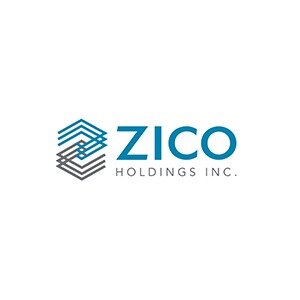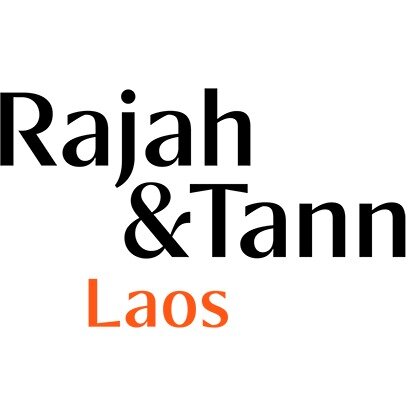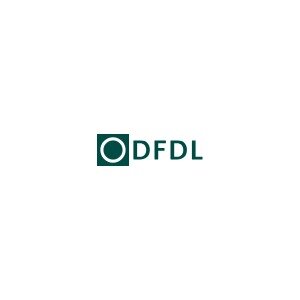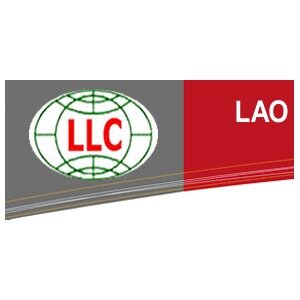Best Sustainable Finance Lawyers in Laos
Share your needs with us, get contacted by law firms.
Free. Takes 2 min.
Or refine your search by selecting a city:
List of the best lawyers in Laos
About Sustainable Finance Law in Laos
Sustainable finance in Laos refers to financing and investment decisions that consider both financial returns and environmental, social, and governance (ESG) factors. As a developing country with abundant natural resources and a growing need for sustainable economic development, Laos is focusing on promoting sustainability and environmental protection in its economic policies. Laws and regulations related to sustainable finance in Laos aim to guide businesses, investors, and financial institutions toward activities that support responsible economic growth, social development, and environmental conservation.
Why You May Need a Lawyer
Legal advice is important in the field of sustainable finance for several reasons. Individuals and organizations may face complex regulatory requirements, negotiations, or compliance challenges. You may need a lawyer if you are:
- Starting a sustainable business or investment project and need advice on regulatory requirements
- Securing funding from local or foreign sources and need help with loan agreements or green bonds
- Negotiating partnerships or joint ventures in renewable energy, agriculture, forestry, or infrastructure projects
- Ensuring your business operations are compliant with ESG regulations and reporting requirements
- Addressing disputes concerning environmental impact, resource rights, or community relations related to your projects
- Pursuing government incentives, grants, or concessional financing for sustainable projects
- Facing environmental liability claims or investigations
Local Laws Overview
Sustainable finance in Laos is influenced by several local laws and regulations that shape how financing and investments should be conducted. Key aspects include:
- Environmental Protection Law: This law sets standards for safeguarding the environment during social, economic, and investment activities. It covers requirements for Environmental Impact Assessments, waste management, and pollution prevention.
- Investment Promotion Law: This encourages both foreign and domestic investments in priority sectors, including green infrastructure, clean energy, and agriculture, often providing incentives for sustainability-focused projects.
- Forestry and Land Laws: These regulate land use, forestry management, and conservation efforts, impacting projects that involve natural resources.
- Banking and Financial Institution Law: This governs the activities of banks, microfinance institutions, and other lenders. It is increasingly integrating sustainable finance principles, including guidelines for issuing green loans and bonds.
- ASEAN Sustainability Standards: As a member of ASEAN, Laos is starting to align with regional frameworks for sustainable finance and green investment, gradually adopting internationally recognized standards.
Frequently Asked Questions
What counts as sustainable finance in Laos?
Sustainable finance includes any financial activities, investments, or initiatives that provide economic benefits while also supporting environmental protection, reduced carbon emissions, and social responsibility.
Are there incentives for green investments in Laos?
Yes, the government offers various incentives to investors in renewable energy, clean technology, sustainable agriculture, and related sectors through tax exemptions, fee waivers, and easier access to project approvals in designated zones.
How do I ensure my business qualifies as sustainable for funding purposes?
You must comply with relevant environmental and social safeguards, demonstrate a positive impact, and often provide documentation such as Environmental Impact Assessments. Consulting a legal expert can help ensure compliance.
Is there a legal framework for green bonds in Laos?
While a specific green bond framework is still developing, Laos encourages the issuance of bonds for sustainable projects. Investors are advised to follow best practices from the ASEAN Green Bond Standards and consult with legal advisors.
What are Environmental Impact Assessments and are they necessary?
Environmental Impact Assessments are evaluations required for many new projects to determine potential environmental and social effects. Under Lao law, certain thresholds of investment or impact require EIA approval before proceeding.
Do local communities have legal rights in sustainable projects?
Yes, community consultation and benefit-sharing are required for many large-scale projects, especially if they affect land rights or traditional use of resources. These rights are regulated by various laws, and legal advice can help clarify obligations.
How can foreign investors participate in sustainable finance in Laos?
Foreign investors can engage in sustainable projects through direct investment, partnerships, or by purchasing green bonds. They must comply with Lao laws on investment, banking, and relevant sector regulations.
What happens if a project fails to comply with sustainability laws?
Non-compliance can lead to penalties, including fines, revocation of licenses, or project suspension. Legal counsel can help resolve disputes or negotiate with authorities if compliance issues arise.
Are there specific reporting requirements for ESG in Laos?
While ESG reporting is still emerging in Laos, some sectors may require periodic disclosures on environmental and social performance. Companies seeking international financing may also need to meet global reporting standards.
Where should I submit legal documents related to sustainable finance?
Documents are typically submitted to the Ministry of Planning and Investment, Ministry of Natural Resources and Environment, or the Central Bank of Laos, depending on your project type and financing structure. Legal assistance can ensure proper filing.
Additional Resources
Several organizations and official bodies provide guidance and support related to sustainable finance in Laos, including:
- Ministry of Natural Resources and Environment
- Ministry of Planning and Investment
- Bank of the Lao PDR (Central Bank)
- Lao Securities Exchange
- Investment Promotion Department
- Chamber of Commerce and Industry
- Asian Development Bank country office
- ASEAN Sustainable Finance Initiatives (regional guidance)
You may also consult with international organizations such as the United Nations Development Programme (UNDP) or the World Bank for technical advice and funding options related to sustainable finance.
Next Steps
If you believe you need legal assistance in the field of sustainable finance in Laos, follow these steps to ensure you receive the right support:
- Identify your specific legal needs, such as compliance, investment agreements, or dispute resolution.
- Gather all relevant documents and information about your project or investment plan.
- Contact a qualified Lao lawyer or law firm with experience in sustainable finance or environmental law.
- Prepare questions regarding relevant laws, regulatory authorities, and possible incentives.
- Attend any required meetings with government offices or regulatory agencies with your legal counsel.
- Monitor ongoing legal developments and maintain communication with your legal adviser for updates that apply to your industry or project.
Seeking professional legal advice early can save you time and resources while ensuring your sustainable finance projects comply with all required laws and regulations in Laos.
Lawzana helps you find the best lawyers and law firms in Laos through a curated and pre-screened list of qualified legal professionals. Our platform offers rankings and detailed profiles of attorneys and law firms, allowing you to compare based on practice areas, including Sustainable Finance, experience, and client feedback.
Each profile includes a description of the firm's areas of practice, client reviews, team members and partners, year of establishment, spoken languages, office locations, contact information, social media presence, and any published articles or resources. Most firms on our platform speak English and are experienced in both local and international legal matters.
Get a quote from top-rated law firms in Laos — quickly, securely, and without unnecessary hassle.
Disclaimer:
The information provided on this page is for general informational purposes only and does not constitute legal advice. While we strive to ensure the accuracy and relevance of the content, legal information may change over time, and interpretations of the law can vary. You should always consult with a qualified legal professional for advice specific to your situation.
We disclaim all liability for actions taken or not taken based on the content of this page. If you believe any information is incorrect or outdated, please contact us, and we will review and update it where appropriate.
Browse sustainable finance law firms by city in Laos
Refine your search by selecting a city.












